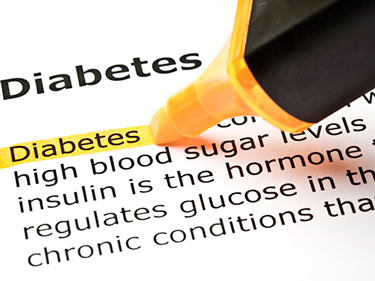 The Kirklin Clinic at the University of Alabama at Birmingham (UAB) is the only entity in the state selected by the American Association of Diabetes Educators (AADE) as part of the National Diabetes Prevention Program. The program offers adults 18 and older considered most at risk for type 2 diabetes – those with a body mass index (BMI) greater than 24 — an evidence-based program that can help prevent or delay the onset of type 2 diabetes through lifestyle changes.
The Kirklin Clinic at the University of Alabama at Birmingham (UAB) is the only entity in the state selected by the American Association of Diabetes Educators (AADE) as part of the National Diabetes Prevention Program. The program offers adults 18 and older considered most at risk for type 2 diabetes – those with a body mass index (BMI) greater than 24 — an evidence-based program that can help prevent or delay the onset of type 2 diabetes through lifestyle changes.
Those who may be at risk of developing type 2 diabetes are encouraged to visit www.uabmedicine.org/diabetes and sign up to be part of the AADE National Diabetes Prevention Program at UAB. The website offers a video about the program and an online quiz to help visitors determine their risk.
In addition to age and BMI requirements, those who have had a blood test within the past year indicating prediabetes are eligible. Also, women with a history of gestational diabetes may be eligible, as are Asian men and women with a BMI greater than 22.
“As the number of Americans with prediabetes grows, we face the certainty of increasing disease, disability and health care expense,” says Terri Brennan, diabetes and nutrition education supervisor at The Kirklin Clinic. “That’s especially true here in Alabama where we have an obesity epidemic. The National Diabetes Prevention Program offers a proven approach to delaying or preventing the onset of type 2 diabetes through modest lifestyle changes made with the support of a coach and one’s peers.”
Type 2 diabetes is the most common form of diabetes, a serious disease in which blood glucose (sugar) levels are above normal. Too much glucose in the body can lead to health issues, including heart attack, stroke, blindness, kidney failure or loss of toes, feet or legs.
Prediabetes is an elevated blood glucose level that is not quite high enough to be diagnosed as diabetes. A third of American adults have prediabetes, and many do not know they have it. The Centers for Disease Control and Prevention, which sponsors the National Diabetes Prevention Program, says more than 10 percent of people with prediabetes will develop type 2 diabetes within three years.
“Because early treatment can prevent you from developing type 2 diabetes, it is important to find out early if you are at risk,” Brennan says.
Participants in UAB’s program will meet as a group with a trained lifestyle coach and learn how to make changes to help prevent or delay the onset of type 2 diabetes. These changes include losing a modest amount of weight, being more physically active and managing stress.
“The group setting provides a supportive environment with people who are facing similar challenges and trying to make the same changes you are,” Brennan says. “Together, you can celebrate successes and figure out ways to overcome obstacles.”
Groups meet once a week for 16 weeks, then once a month for six months. The curriculum for the program is based on research that found people can cut their risk of developing type 2 diabetes in half by losing five to seven percent of their body weight (about 10 to 14 pounds for a person weighing 200 pounds) through improving food choices and increasing activity to at least 150 minutes per week.
Visit uabmedicine.org/diabetes or call 205-801-8711 to learn more about the program.